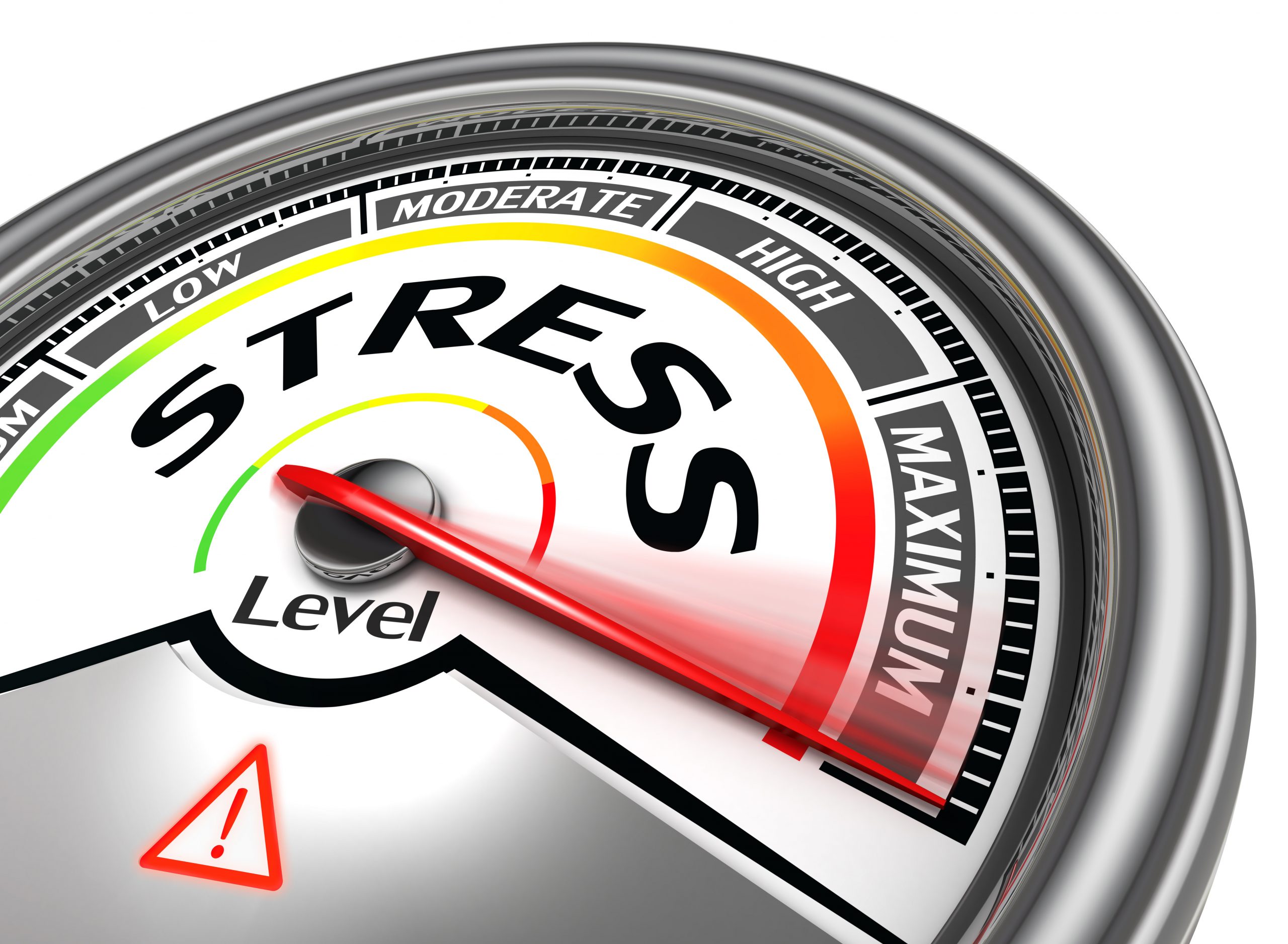
(Manage your stress before it manages you)
It is no secret that men are dying younger than in the past. Life expectancy for men dropped one full year, from 74.2 years in 2020 to 73.2 in 2021. Heart disease and cancer lead the pack as the two most common fatal diseases in men. Some of these reasons can be traced back to genetics- a parent or close relative with heart disease or cancer; however even taking this into consideration, many deaths are preventable. One of the major causes of heart disease and cancer is due to chronic stress.

Stress can be good- when not long term
Stress is a reaction to a real or perceived threat to life. In acute, or short-lived stress, the body activates the sympathetic nervous system (SNS) and the hypothalamic-pituitary- adrenal axis in a process known as “allostasis”. Powerful chemical messages are sent throughout the body to ready for either fight or flight from the situation. The adrenal glands produce the 3 stress response chemical messengers- adrenaline, norepinephrine and cortisol.
All three of these are necessary to sustain life when in balance.
Adrenaline (also known as adrenaline) redirects blood flow to the heart and lungs, increases heart rate, opens bronchus and lungs for better breathing, and raises blood sugar levels. This increases energy and focus, enabling the body to leave or fight the threat. In the medical setting, epinephrine is a life saving drug. For asthmatics it opens up airways, allowing easier breathing. In septic shock, the victims blood pressure plummets to dangerously low levels, epinephrine brings blood pressure up. Likewise, during a cardiac arrest event, blood pressure can drop, in turn inhibiting blood flow to vital organs and brain. Administering epinephrine brings blood pressure up which increases blood flow throughout the body.
Norepinephrine is considered a “back up” to epinephrine. It is produced in the adrenal medulla and functions in much the same way as epinephrine. Just like epinephrine, it maintains blood pressure during cardiac arrest and septic shock. It is also used in pericardial tamponade, a condition in which fluid builds up around the heart membrane, making it difficult for the heart to maintain blood pressure and neurogenic shock, a condition in which there is damage to nerve cells that are responsible for maintaining heart rate and blood pressure.
Cortisol is produced by the adrenal gland in response to a series of chemical messengers starting with the brain. (This is called the HPA axis) The brain receives a message of danger- physical, emotional or mental, it alerts the amygdala- a small region in the brain, which in turn releases corticotropin releasing hormone. This hormone activates the pituitary gland to produce adrenocorticotropic hormone, which in turn activates the adrenal gland to produce cortisol. Almost all body systems have receptors to cortisol. These are called glucocorticoid receptors. Cortisol regulates blood pressure, increases blood sugar, reduces inflammation and is involved in the regulation of the sleep-wake cycle. When not activated by stress, cortisol is released into the blood stream according to the circadian cycle (sleep/wake cycle) It is usually highest in the morning and fluctuates during the day, with the lowest amount in the middle of the night. During times of stress, cortisol is released from the adrenal glands into the bloodstream to ready the body for action. Increased blood sugar gives the muscles ready fuel to act.
Acute stress can be lifesaving, chronic stress can be life threatening
Causes of acute stress
Acute stress is the stress experienced on a daily basis from minor situations. Acute stress typically happens quickly and fades once the situation or circumstance has passed. Hormones return to prestress levels. Examples that may cause acute stress include:
- Argument or altercation
- School exams
- Physical competitions
- Traffic jams
- Acute stress symptoms include short lived anxiety, mood swings, irritability, anger, increased blood pressure(temporary) insomnia,
Acute stress doesn’t cause health issues, the body recovers quickly, and hormones return to normal within 24 hours.
Causes of chronic stress
Chronic stress, which is considered to be at the core of almost all health related conditions, happens when exposed to prolonged stress that doesn’t resolve.
Examples of chronic stress include:
- Illness of a loved one where you are the caregiver,
- PTSD- post traumatic stress disorder- either during military service or traumatic events in life
- Loss of a job and inability to find another,
- Emotional stress with a partner
- Social isolation
Chronic stress and health
There are many health-related diseases associated with chronic stress. Stress affects all systems of the body including the musculoskeletal, respiratory, cardiovascular, endocrine, gastrointestinal, nervous, and reproductive systems. 50 percent of premature deaths in men are from heart disease and cancer. Chronic stress has been implicated in the progression of both.
Cancer– Animal studies consistently prove the link between chronic stress and cancer progression, however, researchers have stopped short of claiming chronic stress can bring on cancer. Given that stress affects the immune system and all the other effects chronic stress have on the body, it would seem that there is a link to cancer and chronic stress.
Heart disease- The consistent and ongoing increase in heart rate, and the elevated levels of stress hormones and of blood pressure, can take a toll on the body. This long-term ongoing stress can increase the risk for hypertension, heart attack, or stroke.

How to deal with chronic stress
Set limits and refrain from taking on more commitments.
Cut back on any non-essential activities in your work life. Identify tasks and projects that you must do and prioritize. Set aside time each day to review progress and prioritize these tasks. Do not take on any more tasks until you feel these are under control. Seek input and help from your coworkers and employer if you are feeling overwhelmed. In social and family settings, re evaluate the time you spend and assess the quality of relationships. If there is animosity or other forms of stress between you and those you are close to, seek solutions, either through active listening and participation, counselling, or both.
Prioritize your mental and physical health and well-being
Everyone has chronic stress. It is how we view and deal with it that makes the difference. Self-care is imperative, both for you and those you are close to. Take time out each day to indulge in something you enjoy doing- even if it is just being alone on a walk. Exercise, social interaction and working on a hobby are all great stress reducers. If you have been feeling helpless, depressed or that your stressor has trapped you and you feel there is no way out, it is time to seek the help of a counsellor and your primary care provider. Counselling along with a complete physical can provide answers. Chronic stress raises blood sugar, which can be the start of diabetes. High blood sugar causes emotional instability and depression. Be sure to keep yu annual physical appointments. If your physical health is in good shape, your care provider may suggest medication along with counselling until you are able to resolve the chronic stress, either by learning healthy ways to cope or removing yourself from it.
- Brooke Lounsbury, RN
Medical Content Writer
Lifesaving Medications
Recent Posts
Keeping you informed and safe.
FAQ: Our most commonly asked questions about Jase
If you’re considering Jase, chances are you’ve paused and thought, “This makes sense, but I still have a few questions.”You’re not alone. Here are the most common ones we hear, answered plainly. Is this really doctor-prescribed? Yes. Every Jase order is reviewed by a...
Medical Readiness: What Really Kills First
When Disaster Strikes, It’s Not Hunger or Thirst That Takes the First Lives In every disaster zone, from hurricanes in the Caribbean to war zones in Ukraine, the pattern is the same. People worry about food and water, but it’s infection that kills first. A small wound...
Exploring Dr. William Makis’ Hybrid Orthomolecular Cancer Protocol: Focus on Ivermectin and Mebendazole/Fenbendazole
Exploring Dr. William Makis’ Hybrid Orthomolecular Cancer Protocol: Focus on Ivermectin and Mebendazole/Fenbendazole *Disclaimer: This article is for educational purposes and does not constitute medical advice. Always seek professional guidance.* In the evolving...




